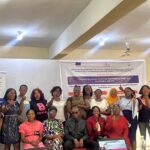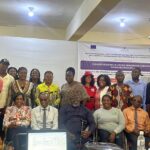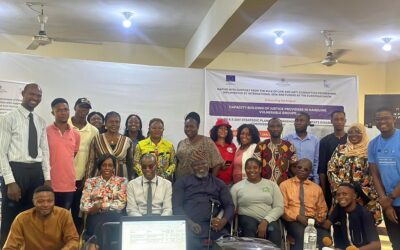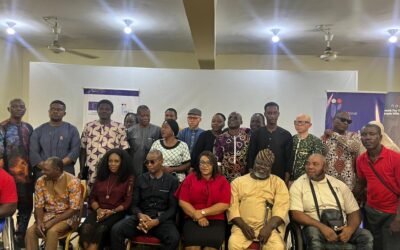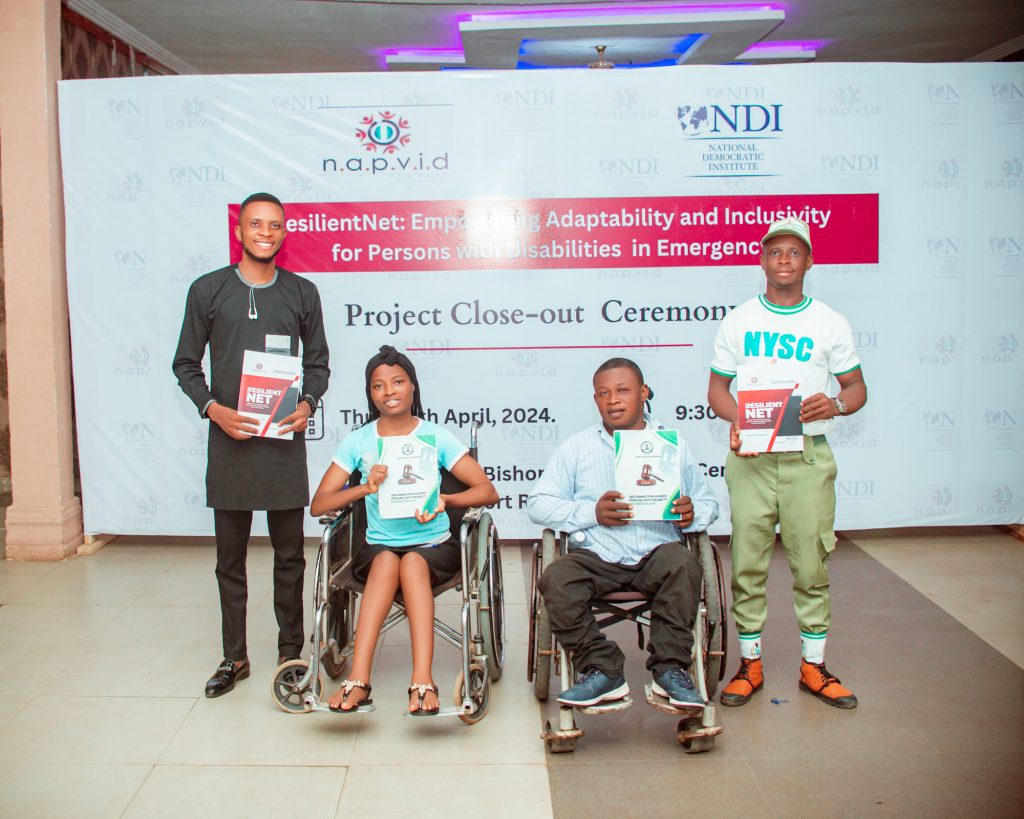
The abrupt removal of Nigeria’s fuel subsidy in late 2023 has imposed severe hardships across society – with Persons with Disabilities (PWDs) among the hardest hit. A recent Edo State study (the ResilientNET project by NAPVID) employed rigorous mixed methods (household surveys, focus groups and key-informant interviews) across all three senatorial districts. In total 60 PWD households were surveyed (20 per district) alongside FGDs of disability groups and interviews with government officials. This combination of quantitative and qualitative research “produced hard numbers” on outcomes (e.g. 200–300% spikes in transport costs) and vivid personal accounts of distress. In parallel, disability advocacy forums gathered secondary data and testimonials to complement these findings.
Methodology
The ResilientNET survey (supported by NDI) used structured questionnaires in all districts, key informant interviews (KIIs), and focus group discussions (FGDs) among Edo disability clusters. To accurately assess the multifaceted impact of fuel subsidy removal on Persons with Disabilities (PWDs) in Edo State, Nigeria, the research adopted a mixed-methods approach, integrating both quantitative and qualitative data collection techniques. This approach ensured not only statistical representation but also the depth of lived experiences, especially among a population often underrepresented in socioeconomic policy research.
Study Design and Area
The study was conducted across the three senatorial districts of Edo State—Edo North, Edo Central, and Edo South between December 2023 and January 2024. These locations were selected to reflect the geographic, cultural, and socio-economic diversity within the state, thereby enabling a comprehensive understanding of the challenges faced by PWDs across urban and semi-urban settings.
Sampling Strategy
A purposive sampling technique was used in collaboration with local chapters of the Joint National Association of Persons with Disabilities (JONAPWD) to identify participants across four disability clusters: physical disabilities, hearing impairment, visual impairment, and albinism. Equal representation of gender and age groups was ensured where possible.
-
Household Surveys: A total of 60 PWDs were selected—20 from each senatorial district. Participants responded to structured questionnaires administered in person by trained PWD enumerators to ensure clarity and accessibility.
-
Focus Group Discussions (FGDs): 36 participants (12 per senatorial district) took part in FGDs held in Benin (South), Ekpoma (Central), and Auchi (North). These sessions provided insight into shared experiences, challenges, coping strategies, and socio-psychological impacts.
Key Informant Interviews (KIIs)
In-depth interviews were conducted with relevant government stakeholders in ministries directly or indirectly responsible for disability support and social welfare. These included:
-
Ministry of Social Development and Gender Issues
-
Ministry of Youth and Humanitarian Affairs
-
Ministry of Business, Trade, and Cooperatives
-
Ministry of Health
-
Edo State Social Investment Programme (EDSIPO)
-
Edo City Transport Service (ECTS)
These interviews sought to understand current institutional responses to the subsidy removal, the inclusiveness of existing social protection mechanisms, and the gaps in service delivery.
Desk Review
A desk review complemented field data by analyzing relevant policies, legal documents, and government frameworks notably the Edo State Disability Law (2022) and the draft Edo State Social Protection Policy (2022). This review provided context on the state’s legal and institutional commitments to disability inclusion and social equity.
Data Analysis
-
Quantitative data from household surveys were analyzed using descriptive statistics (percentages, frequencies, averages), presented through tables and charts to illustrate economic and social trends post-subsidy removal.
-
Qualitative data from FGDs and KIIs were analyzed thematically, focusing on economic hardship, healthcare access, social isolation, and institutional response.
-
Legal analysis was conducted to assess gaps in implementation and enforcement of disability-related rights and protections.
Ethical Considerations
The study adhered strictly to ethical research protocols. Informed consent was obtained from all participants, and confidentiality was maintained. Data collection was conducted by trained PWDs, ensuring inclusivity and cultural sensitivity. All findings were anonymized, and data storage complied with relevant data protection guidelines.
Key Findings: The results paint a dire picture for Persons with Disabilities:
-
Universal Hardship: Every surveyed PWD reported worsened hardship. 100% of respondents experienced increased financial strain post-subsidy removal. Household budgets were crushed as fuel price hikes cascaded into food, medical, and energy costs. Many PWDs said they cannot eat twice a day anymore; some skip meals so their children can eat. The economic stress has been described in the strongest terms, the situation is “alarming, critical, unbearable”. Nearly all participants reported feelings of hopelessness, loneliness and depression, with some admitting suicidal thoughts as despair deepens.
-
Skyrocketing Transport Costs: PWDs in Edo rely heavily on transportation (often specialized or private) to access work, school and care. The survey found transport fares literally tripling in some cases (200–300% increases). This has effectively cut off mobility for many PWDs. As NAPVID’s report notes, every respondent faced “steeper costs for necessities” and reduced ability to travel. These hikes exacerbate isolation: inaccessible or overpriced transport means missing medical appointments or social services.
-
Decline in Living Standards: The confluence of higher prices and stagnant incomes has dramatically reduced living standards. PWD leaders point out that fuel subsidy removal has “triggered [an] unprecedented surge in cost of living, affecting lives and livelihoods”. With no targeted social support, PWDs already 3× more disadvantaged than other Nigerians, have seen their poverty deepen. A 2019 estimate of 675,000 PWDs in Edo is now worse off: “675,000 PWDs…are groaning under the weight of the removal of subsidy on fuel”, with no mechanism to ensure their survival. In short, fuel subsidy removal has compounded vulnerabilities: reduced purchasing power, food insecurity and unemployment abound.
-
Psychosocial Impact: The emotional toll is severe. Survey respondents unanimously agreed that economic stress has increased anxiety and depression. As one report observes, “staying at home without hope…has increased the feeling of loneliness, overthinking and depression”, to the point of suicidal ideation. These findings mirror health research across Nigeria: studies have recorded sharp rises in depression and anxiety following subsidy removal, especially among disadvantaged groups.
In summary, the Edo State PWD survey confirms that fuel subsidy removal disproportionately harmed PWDs. Key metrics include 100% reporting financial strain, 200–300% fare hikes, and universal declines in well-being. These align with on-the-ground advocacy: Edo disability forums stress that PWDs are “particularly severe[ly]” affected and disproportionately disadvantaged.
Comparison to Other Research
The findings from the NAPVID study are broadly consistent with emerging national evidence on the disproportionate burden of fuel subsidy removal on Nigeria’s vulnerable populations. While this study uniquely centers Persons with Disabilities (PWDs), its conclusions echo similar patterns documented in recent Nigerian research assessing economic shocks, inflation, and exclusion following the 2023 fuel subsidy removal.
For instance, Abdul et al. (2025), in a nationwide economic impact assessment, found that the fuel subsidy removal significantly exacerbated hardship among low-income households and informal workers. They reported widespread inflationary pressure, sharp declines in real incomes, and a surge in transportation costs, with average daily commuting expenses rising by 150–250% across states. This mirrors the 200–300% increase in transportation costs reported by PWDs in Edo State, reinforcing that marginalized groups especially those reliant on daily movement and specialized transport are most severely affected.
A regional study by Njoku & Mmougbuo (2024) focused on low-income families in South-East Nigeria and found a notable decline in food security and healthcare utilization post-subsidy removal. Like the PWD households in Edo, respondents reported skipping meals, deferring medical treatment, and reallocating funds from essentials to transport or fuel. In both studies, the primary coping mechanisms involved self-medication, dietary reductions, and reduced mobility, behaviors that carry long-term health and socio-economic risks.
From a mental health lens, Bakare et al. (2024) explored the psychological toll of the subsidy removal on frontline healthcare workers and community members in Ogun State. Their study found a statistically significant rise in depression, anxiety, and burnout, especially among financially vulnerable groups. This aligns with the Edo study’s finding that 100% of PWD respondents reported worsening mental health conditions, including loneliness, hopelessness, and in extreme cases, suicidal ideation due to food scarcity and social isolation.
Importantly, while most national and regional studies mention “vulnerable populations,” few disaggregate PWD-specific data. This makes the Edo State study by NAPVID particularly valuable in filling a crucial knowledge gap. It not only quantifies the economic and social impact on PWDs but also contextualizes these within a legal and rights-based framework, assessing the performance of institutions tasked with protecting disability rights post-subsidy removal.
These sources report that PWDs are being systematically excluded from government palliative programs, transportation subsidies, and economic recovery schemes, despite representing one of the most affected demographics.
What sets the NAPVID study apart is its bottom-up, participatory methodology involving PWDs as enumerators and research actors. This not only ensures contextual accuracy but also strengthens the credibility of its advocacy-oriented recommendations.
Together, these comparative studies demonstrate that unless targeted and inclusive interventions are adopted, fuel subsidy removal will deepen structural inequalities, particularly for persons with disabilities.
Recommendations and Way Forward: Based on the evidence, immediate policy action is needed:
-
Social Protection for PWDs: The government must implement disability-sensitive palliatives. Stakeholders urge cash transfers, food aid or disability grants to offset the fuel shock. Edo advocates have already demanded an official Disability Commission and guaranteed representation in planning. These should be fast-tracked, along with a clear budget line for PWD support. As NAPVID recommends, subsidized wheelchair-accessible transport services should be provided, and unemployed PWDs enrolled in health insurance schemes.
-
Economic Empowerment: Interest-free loans, vocational training and inclusive employment programs can help PWDs rebuild livelihoods. Edo State authorities have pledged to extend federal grants to PWDs and facilitate microloans. This process must be accelerated, ensuring PWD entrepreneurs are “taught how to fish” rather than given handouts.
-
Transparency and Reinvestment: Experts emphasize that savings from subsidy cuts be transparently reinvested in social programs. Federal and state governments should openly allocate these funds to infrastructure (especially accessible transport, healthcare, renewable energy) which benefits PWDs and the broader poor. Civil society and media must continue to hold officials accountable to promised initiatives.
-
Inclusive Policy Design: Future reforms must adopt a phased, evidence-based approach. Research advises a gradual subsidy phase-out with concurrent safety nets for vulnerable groups. Policymakers should consult PWD organizations at all stages, ensuring “no one is left behind”. Integrating disability inclusion into social protection strategies will help mitigate inequities.
In conclusion, the Edo State research on the impact of fuel subsidy removal on PWDs makes clear that Nigeria’s fuel subsidy removal has compounded disability and poverty. For millions of Nigerians, higher fuel prices mean higher food and transport costs. But for PWDs – who already face social and economic barriers, the impact is existential. The findings demand an advocacy-oriented response: immediate relief to affected PWDs, swift implementation of inclusive policies (Disability Commission, accessible transport, etc.), and prudent use of subsidy savings for public welfare. By combining rigorous data with grassroots advocacy, stakeholders have a roadmap for action. The way forward must ensure that fuel policy reforms do not deepen inequality but instead catalyze support for Nigeria’s most vulnerable, including persons with disabilities.
Read full research report here…
References
Abdul, K., Pius-Ajibade, F. I., & Moses, I. K. (2025). Effect of Fuel Subsidy Removal on the Economy of Nigeria. International Journal of Research & Innovation in Social Science, 903, 3604–3615rsisinternational.org.
Bakare, D., Salako, J., Sogbesan, A., & Bakare, A. A. (2024). Early Impacts of Fuel Subsidy Removal on Mental Health Status of Primary Healthcare Workers and Community Members in Nigeria. Annals of Ibadan Postgraduate Medicine, 22(3), 22–33pubmed.ncbi.nlm.nih.gov.
Emenyonu, A. (2024). Persons with Disabilities Lament Current Economic Hardship. THISDAY (Nigeria), Feb 10, 2024thisdaylive.com.
Agbo, C. (2024). Subsidy Removal: Economic Hardship Grips PWDs in Edo State. Qualitative Magazine, Feb 9, 2024qualitativemagazine.com.
Omosah, M. (2025). Fuel Subsidy Removal – Empowering PWDs in Edo State through ResilientNET Project. Napvid (ResilientNET Project Blog), Apr 30, 2025napvid.org.
NationalPoint Daily (Paul, I. E.) (2024). PWDs in Edo Are Dying Under Pains of Fuel Subsidy Removal. March 20, 2024nationalpointdaily.com.
ThisDay (Edo Disability Forum/Adibe, A.) (2024). Persons with Disabilities Lament Current Economic Hardship. THISDAY, Feb 10, 2024thisdaylive.com.
Njoku, E. C., & Mmougbuo, C. C. (2025). Assessing the Impact of the 2023 Fuel Subsidy Removal on Low-Income Families in Nigeria. Alvan Journal of Social Sciences, 2(1)
